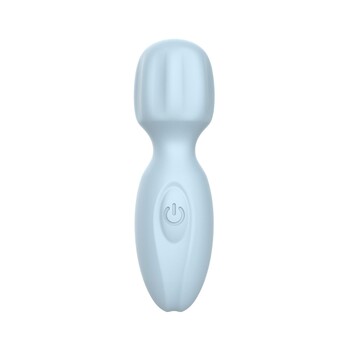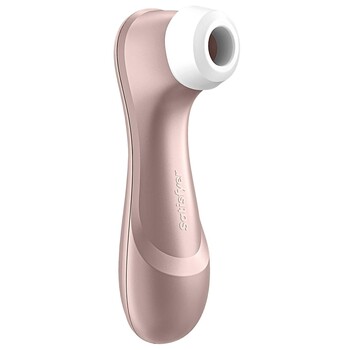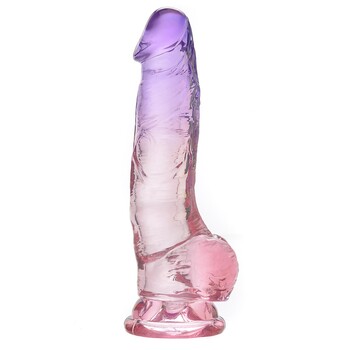Menopause can have a tremendous effect on a woman’s sex life, but fortunately all is not lost!
If you (or your partner) are suffering from a loss of sex drive during your menopause period, you have come to the right place. In the next few paragraphs, we will explain the effects that the menopause has on a woman’s sex drive and give some advice on what you can do to make things easier.
Menopause in Numbers
Menopause can cause women to experience heat waves, nightly sweats, headaches and shifts in mood, but even if you are lucky to avoid these, this still doesn’t mean you won’t experience sexual difficulties. The British Telegraph reported on a recent survey that questioned over 2,500 women: “More than 80 percent said they still wanted to continue to have an active sex life but their body appeared to be letting them down.” A study by Philip M Sarrel, MD, reported similar results. Among women who participated in the study, 77% complained about a loss of sexual desire, 50% reported having sex less than once a month and 24% have pain during intercourse.
The sad news is that this happens to women even if they have enjoyed a good sex life their entire life.
What are the Symptoms of Menopause?
The signs of menopause do not appear suddenly. They creep in gradually and they are caused by a reduction of the female hormone estrogen and an elevation of FSH (follicle stimulating hormone). At the age of 40, the level of testosterone – which is in charge of the female sex drive – is usually half what it was at the age of 21. In the first two years of menopause, there is a further reduction of 15% in testosterone levels.
All of these lead to a decrease in lubrication in the vagina and vaginal dryness during sexual arousal, decreased sensations in the clitoris and a loosening of the vaginal muscles. It may also be more difficult for the woman to reach an orgasm.
The problem is physiological and it is caused because of a lower blood flow to the clitoris and the vagina. Changes occur in the vaginal tissue due to low estrogen production in the ovaries, which lead to a less elastic vagina. The vaginal opening becomes narrower and the tissues become more delicate and fragile. The result is pain during intercourse. The woman will also need to be stimulated for a longer time to achieve lubrication.
On top of that, psychological changes also have an effect: some women know that sex may hurt so they avoid it. In some cases due to the fear of pain, they develop vaginismus, which is an involuntary contraction of the vaginal muscles that prevents penetration.
These changes can also affect your partner. Due to difficulties in penetration, some men begin to complain about erectile dysfunction (ED). That is why one of the first things I ask men who complain about ED is whether their partner is suffering from vaginal dryness. The inability to penetrate may also lead to sexual performance anxiety for your partner.
So What Can You Do?
Taking hormones can improve sexual functioning for women in the menopause period, but nowadays we don’t recommend taking hormones for more than 10 years, due to the increased chance of breast cancer.
Hormones can be taken in the form of tablets, gel that is applied to the skin, stickers or local creams, tablets or ointment for local vaginal treatment. These treatments improve sexual functioning for around 80% of women, who report that the problem of pain during intercourse is resolved. According to surveys, these treatments restored clitoral sensitivity for 55% of women, 30% regained the ability to have an orgasm and 40% experienced better orgasms.
The problem is that even if the vaginal dryness and the pains are gone in some cases there is still a loss of sex drive. In these cases, some recommend adding a low dosage of testosterone with close monitoring. Research shows that daily testosterone applied to the skin leads to a two- to threefold increase in the need for sex. It has also been shown that a combination of testosterone and estrogen is better for improving sexual desire than hormonal treatment that does not include testosterone.
For some women though, testosterone causes side effects. These are not common and they include excessive hairiness and changes in their voice, which is more common among women who smoke. You can reduce the likelihood of side effects by accurately setting and monitoring the dosage for the patient. In any case, the excessive hairiness usually disappears when you stop treatment.
In conclusion, most women can use estrogen and testosterone during menopause to deal with sexual dysfunction. They enjoy good results and do not experience any side effects. Consult your doctor to learn more about the different treatment alternatives.

Dr. Zuckerman is a consultant of the Between Us Clinic, which provides the PE Program — an online home exercise program for treating premature ejaculation.
Dr. Zvi Zuckerman is a medical doctor and certified sex therapist. Dr. Zuckerman was certified as a supervisor of sex therapy by the American Association of Sex Educators, Counselors and Therapists (AASECT) and as a marital and sex therapist by the Marriage Council of Philadelphia at the University of Pennsylvania.




